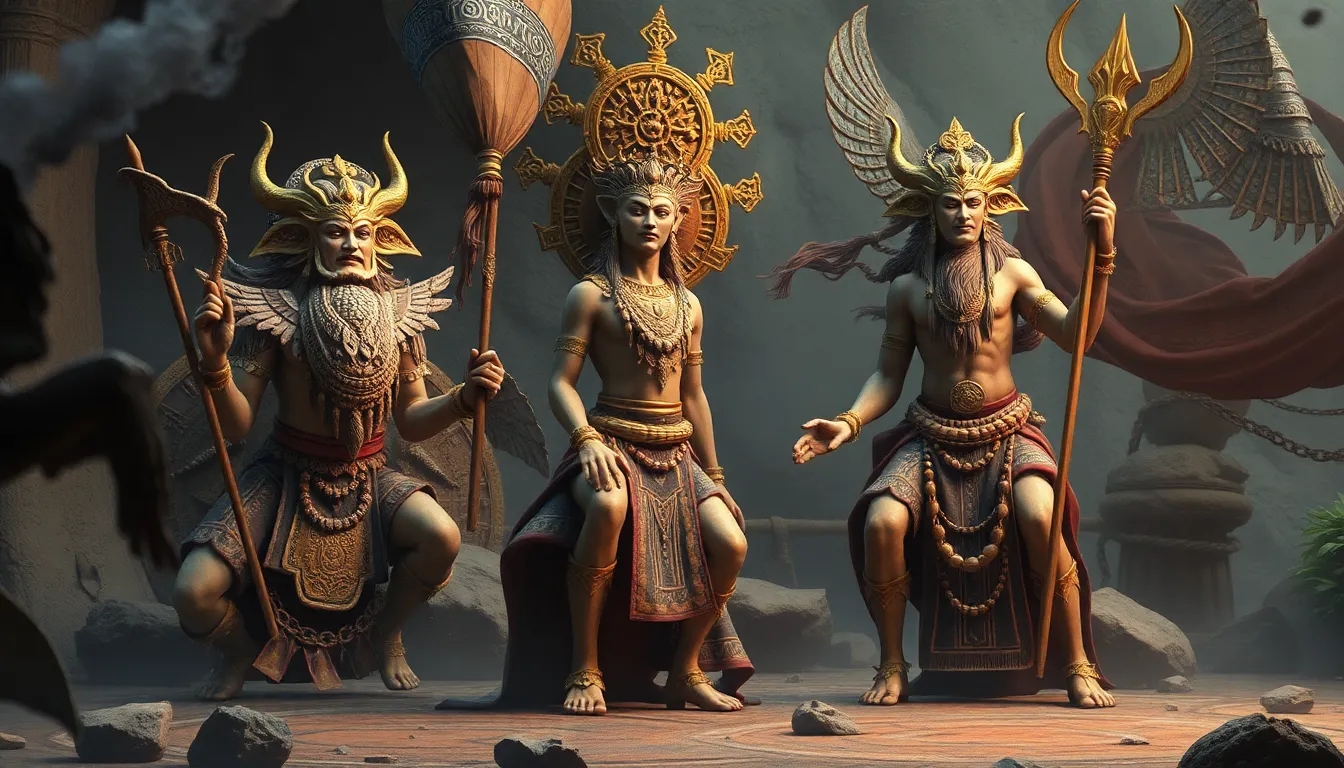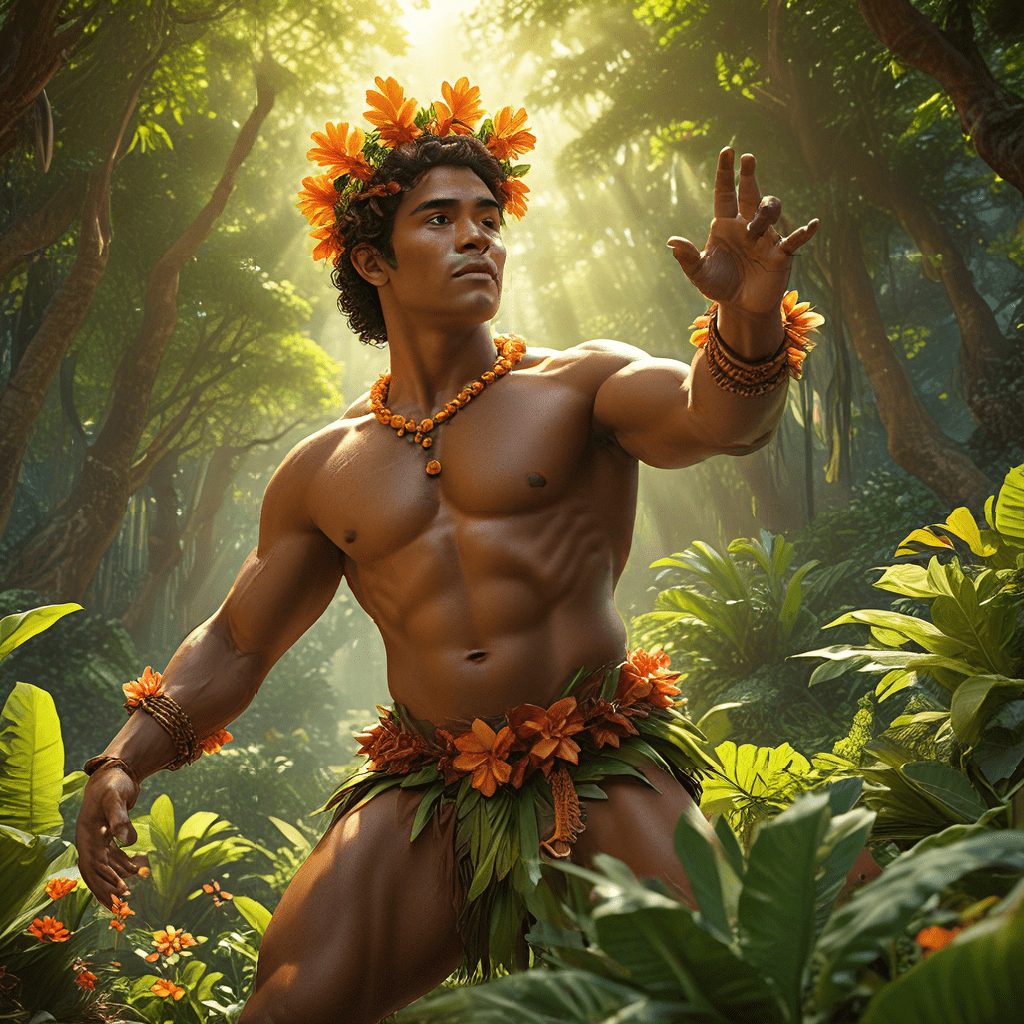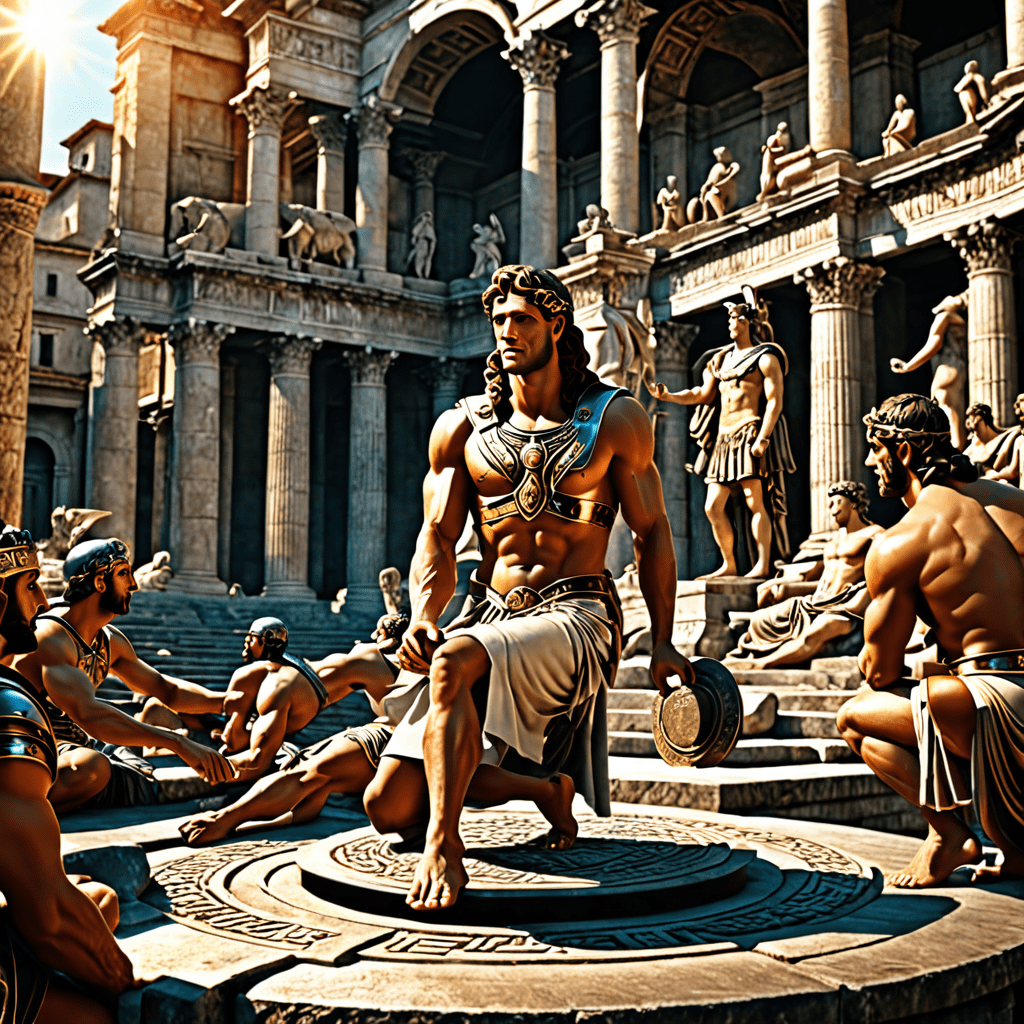The Most Interesting Myths of Ancient Deities and Their Lessons
I. Introduction
Myths are traditional stories that convey the beliefs, values, and cultural practices of ancient societies. They serve as a window into the past, reflecting the hopes, fears, and moral lessons of the people who created them. In many ancient cultures, deities played a central role in these myths, acting as powerful figures who governed various aspects of life and the universe.
This article aims to explore some of the most fascinating myths surrounding ancient deities and the timeless lessons they impart. By examining creation myths, heroic quests, complex relationships, trickster figures, and more, we can gain insights into the human experience and the enduring nature of these stories.
II. The Creation Myths: Understanding the Origins of the Universe
Creation myths are foundational narratives that explain how the universe and life came into existence. Different cultures have their unique versions of these stories, often featuring gods and goddesses who shape the world.
One notable example is the Egyptian god Atum, who is said to have emerged from the chaotic waters of Nun. He created himself and, from his own being, produced the first gods and goddesses, eventually leading to the creation of the world.
The lesson here emphasizes the importance of beginnings and the interconnectedness of all life. Creation myths remind us that everything has an origin and that our existence is tied to a larger cosmic narrative.
III. The Heroic Quests: Deities as Symbols of Courage
The concept of the hero’s journey is prevalent in mythology, where deities often embark on epic quests that test their strength and character. These stories illustrate the virtues of courage and resilience in overcoming challenges.
A classic example is Hercules and his Twelve Labors. Tasked with seemingly impossible feats, Hercules battles ferocious beasts, retrieves valuable items, and faces numerous trials. Each labor not only showcases his strength but also his growth as a character.
The lesson derived from Hercules’s story highlights the importance of perseverance in the face of adversity. It teaches us that personal growth often comes from overcoming challenges and that bravery is not the absence of fear but the determination to act despite it.
IV. Love and Betrayal: The Complex Relationships Among Gods
Myths often delve into themes of love, betrayal, and the complexities of relationships. These narratives reveal the emotional struggles of deities and the consequences of their actions.
One striking example is the tale of Aphrodite and Ares. Aphrodite, the goddess of love, falls in love with Ares, the god of war, despite being married to Hephaestus. Their passionate affair leads to turmoil, showcasing the chaos that can arise from desire and betrayal.
This myth illustrates the duality of love—its beauty and its potential for destruction. It teaches us that our choices in relationships can have profound impacts, often leading to unexpected consequences.
V. Tricksters and Transformations: Deities Who Challenge Norms
Trickster figures in mythology often challenge societal norms and expectations, using wit and cunning to navigate their worlds. These deities often embody change and transformation.
A prominent example is Loki from Norse mythology. Known for his mischievous behavior, Loki’s actions frequently lead to chaos among the gods. However, he also plays a crucial role in significant events, including the death of Baldr and the eventual Ragnarok.
The lesson from Loki’s tales emphasizes the value of questioning authority and embracing change. It reminds us that disruption can lead to growth and that adaptability is essential in a constantly shifting world.
VI. The Fall of Deities: Lessons in Hubris and Redemption
Myths often depict the downfall of gods who succumb to hubris, serving as cautionary tales about pride and arrogance. These stories highlight the consequences of overstepping boundaries.
An illustrative example is the story of Icarus, who flew too close to the sun using wings made of feathers and wax. Despite his father’s warnings, Icarus’s hubris led to his downfall when the wax melted, causing him to plummet into the sea.
This myth teaches that hubris can lead to one’s undoing and underscores the importance of humility. It reminds us to recognize our limitations and respect the forces greater than ourselves.
VII. The Afterlife: Deities Guiding Souls Beyond Death
Beliefs about the afterlife and the deities associated with it are prevalent in many cultures. These myths provide insight into how ancient societies viewed morality, justice, and the journey beyond this life.
A notable figure in this realm is Anubis, the Egyptian god who guides souls through the afterlife. He is depicted as overseeing the weighing of the heart ceremony, where the deceased’s heart is weighed against the feather of Ma’at, symbolizing truth and justice.
The lesson here emphasizes the significance of moral choices and accountability. Anubis’s role reminds us that our actions in life have consequences and that we must strive for integrity and virtue.
VIII. Nature and Fertility: Deities Representing the Earth
Many ancient cultures revered deities associated with nature and fertility, recognizing their essential role in the cycle of life. These gods and goddesses often symbolize the earth’s bounty and the rhythms of agriculture.
The story of Demeter and Persephone in Greek mythology encapsulates this theme. Demeter, the goddess of the harvest, is devastated when her daughter Persephone is taken to the underworld by Hades. This myth explains the changing seasons, as Demeter’s grief causes the earth to become barren during Persephone’s absence.
This narrative teaches the cyclical nature of life and the need for balance. It highlights the interconnectedness of life, death, and rebirth, emphasizing the importance of nurturing both the earth and our relationships.
IX. Conclusion
The myths of ancient deities are rich narratives that offer profound insights into human nature and the world around us. From creation stories to tales of love and betrayal, these myths convey timeless lessons that remain relevant today. By exploring these fascinating narratives, we not only connect with our past but also gain valuable perspectives on our lives and the choices we make.



